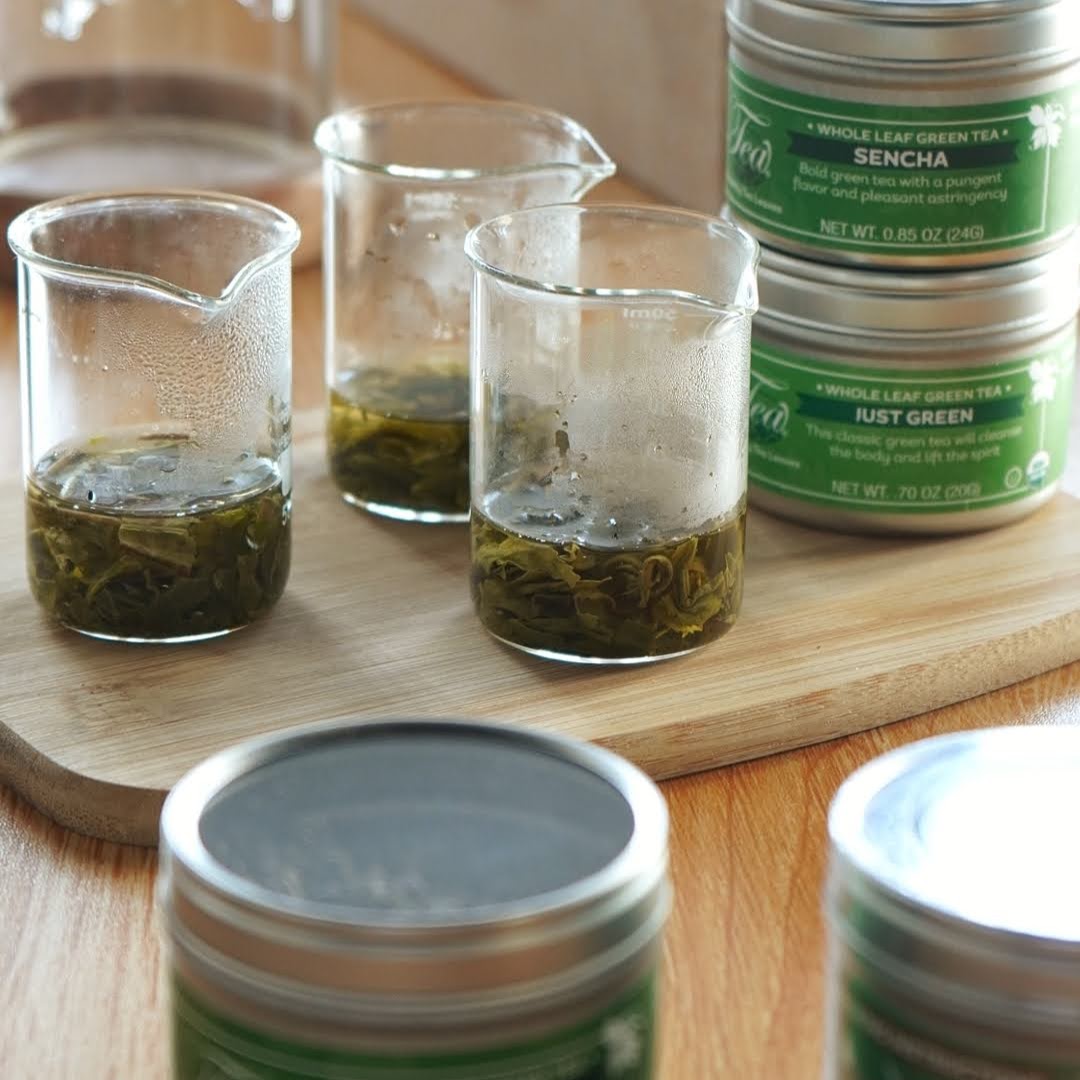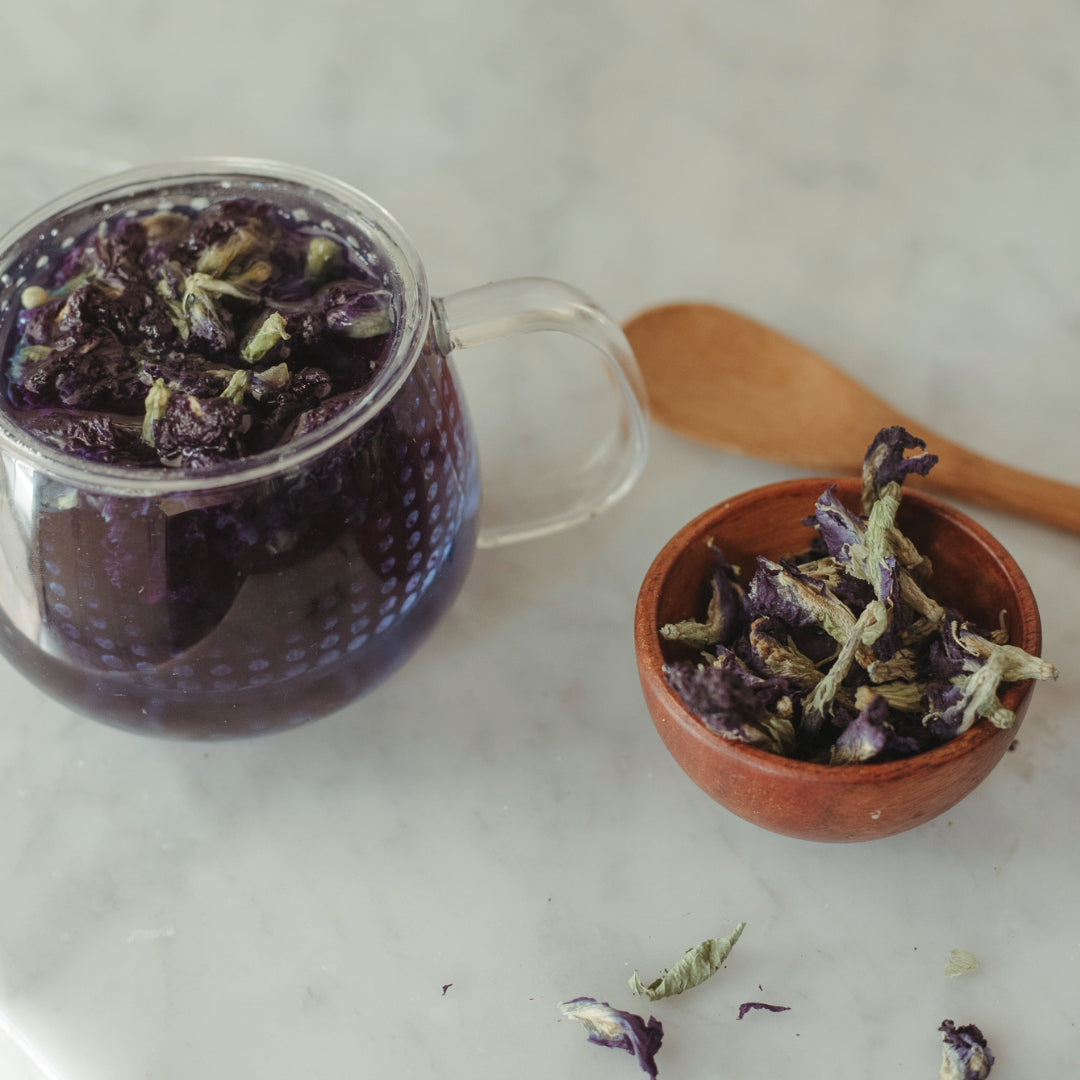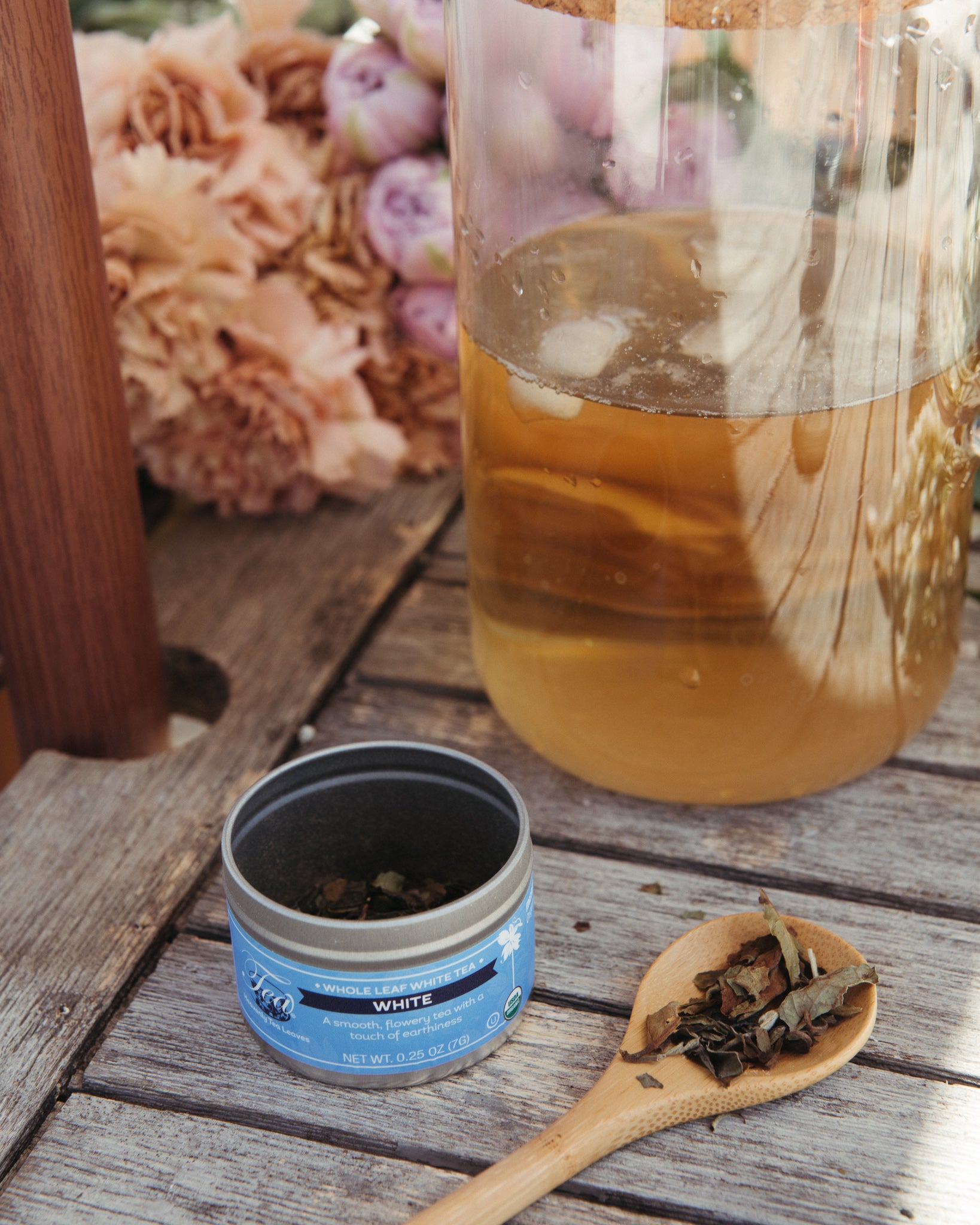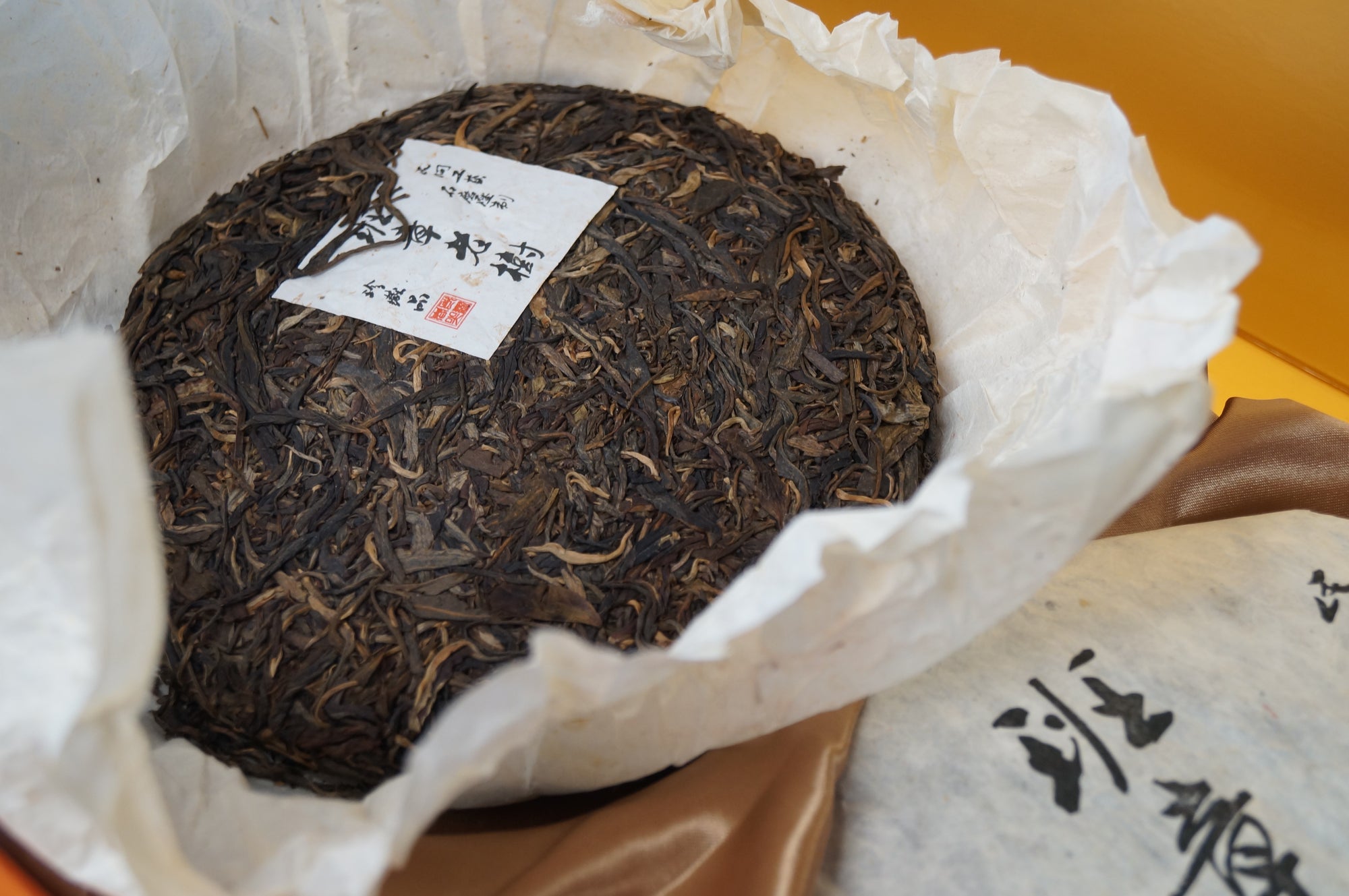The Health Benefits Of Tea
People have been aware of the health benefits of tea for nearly five millennia. Since the first leaves allegedly fluttered down from their branch into the cup of an unsuspecting Chinese Emperor, this remarkable beverage has played an important role in keeping us healthy and curing what ails us. Although all types but herbal tea derive from the same plant, different tea varieties offer drinkers a healthy hand in a surprising number of areas. Read on to learn more about the many health benefits of tea.
Green Tea
Touted for its health benefits more than any other tea variety, green tea is glorified for good reason. Unoxidized (or slightly oxidized), green tea contains the same heart health and cancer-fighting compounds found in other teas, but takes things a step further. The powerful bioactive polyphenol Epigallocatechin gallate (EGCG) is especially abundant in green tea. Believed to reduce tumors and prevent their regrowth, EGCG also helps to shield the body from harmful UVB rays which can lead to skin cancer.
For many people, one of the most exciting things about green tea is its potential to assist us with weight loss. Catechins fuel thermogenesis-heat production which helps the body burn calories faster and more efficiently. These compounds may also help the effects of thermogenesis last longer by inhibiting the release of certain brain chemicals. A number of studies suggest that consuming at least three cups of green tea each day can help significantly raise the body’s metabolic rate. That can mean the difference between hanging on to those last few pounds or watching them melt away.

Black Tea
While many people drink coffee to boost concentration, it contains twice the caffeine as a serving of black tea. This can actually make it more difficult to focus. The caffeine content of black tea promotes blood flow to the brain while the amino acid L-theanine promotes concentration, so you can stay awake and on task without placing added stress on your circulatory system. It is believed that drinking black tea regularly holds the added benefit of protecting the brain against the onset of Parkinson’s disease.
Abundant in manganese and antioxidants, black tea improves cardiac muscle function and helps prevent the oxidation of LDL cholesterol, which can damage arterial walls, and increase the risk of heart disease. Flavonoids, effective vasodilators, can help improve circulation and reduce instances of clotting. Make no bones about it, black tea holds big benefits for those who drink it religiously; and anything that helps someone stay healthy and tastes great is great in our book.

Herbal Tea
Celebrated for its myriad of health benfits, herbal tea stands out as a beacon of wellness in the vast sea of beverages. Each cup is steeped in tradition, offering a unique blend of flavors and benefits derived from nature's finest herbs, botanicals, roots, flowers, and fruits. Unlike its caffeinated counterparts, herbal tea offers a caffeine-free alternative that soothes, rejuvenates, and heals.
Among the treasure trove of herbal infusions, chamomile is often hailed as the crown jewel for its unparalleled calming effects. Peppermint tea emerges as a hero for digestive health, wielding its refreshing minty flavor as an aid against digestive discomfort. Hibiscus tea, with its vibrant hue and tart taste, not only delights the palate but also boasts a plethora of health benefits.
Incorporating herbal tea into your daily routine is more than a mere act of hydration; it's an age-old ritual of self-care. As research continues to unveil the health benefits of these herbal concoctions, it becomes clear that herbal tea is a lifestyle choice for those dedicated to nurturing their health. So, whether you're looking to calm your nerves, boost your immune system, or simply enjoy a moment of tranquility, herbal tea offers a natural, flavorful solution to enhance your well-being.

White Tea
Although its flavor is delicate and mild, white tea is no pushover when it comes to packing a powerful punch. Less processed than other varieties, its leaves retain more of their positive benefits. One of the most notable is a high concentration of antioxidants; nutrients that protect the body from free radicals which accelerate aging and damage DNA. Antioxidants act like sentries, cruising around until they catch free radicals that are up to no good and neutralize them. Some of the most powerful antioxidants are known as flavonoids. Known to inhibit cell growth.
Another class of antioxidants, catechins can protect against heart attack and stroke by lowering bad cholesterol, increasing good cholesterol, and preventing arterial blockages. White tea is also thought to help maintain healthy blood pressure levels by thinning the blood. Researchers have discovered that consuming three or more cups of white tea may reduce your risk of heart disease by as much as 21%. To top things off, white tea even contains small amounts of fluoride which kill plaque-causing bacteria, prevent tooth decay, and fight bad breath.

Pu'er Tea
Pu'er differs from other tea in that it undergoes actual fermentation during processing. The chemical reactions involved in the fermentation process help boost the creation of polysaccharides, carbohydrate molecules that have been shown to help lower blood sugar in mice. While its impact on humans requires further research, it is possible that Pu'er (or Pu-erh) consumption may prove beneficial to people with Type-2 diabetes. Pu'er tea is also thought to be helpful in managing blood pressure and cholesterol levels, which help keep the heart healthy.
Pu'er may be even more effective than green tea when it comes to fat-fighting power. If heavy meals are a constant source of discomfort, a cup or two of pu'er may help lighten the load. This useful tea helps aid digestion, boost the metabolism, and reduce acidity so you don’t have to suffer from that unwanted bloating. Pu-erh is also a good remedy when a weekend of excess catches up with you. A cup of pu-erh is one of the most effective ways to banish that hangover headache.

Oolong Tea
While it may not be quite as beneficial as its greener cousin, oolong tea consumption still has some great advantages. One of its most noteworthy properties is its ability to provide relief from certain skin disorders. Eczema or Atopic dermatitis is an allergic condition which causes skin to grow itchy, red, and flaky. Some versions of the disorder are especially troubling because they refuse to respond to conventional treatment. While oolong does not cure AD, a 2001 study revealed that after drinking one liter of oolong per day while continuing regular dermatological treatment, 63% of patients experienced an improvement in symptoms.
Individuals who drink oolong regularly tend to derive great benefits from the concentration of magnesium and calcium in its leaves. These compounds assist the body in retaining minerals from food and help it to use them more effectively. Magnesium and calcium also work in tandem to prevent bone density loss, which can contribute to osteoporosis.
Individuals who drink oolong regularly tend to derive great benefits from the concentration of magnesium and calcium in its leaves. These compounds assist the body in retaining minerals from food and help it to use them more effectively. Magnesium and calcium also work in tandem to prevent bone density loss, which can contribute to osteoporosis.

For Educational Purposes
This information has not been evaluated by the Food and Drug Administration. This information is not intended to diagnose, treat, cure, or prevent any disease. Always consult with your doctor before making any changes to your diet, especially if you are pregnant, nursing or have existing conditions.
